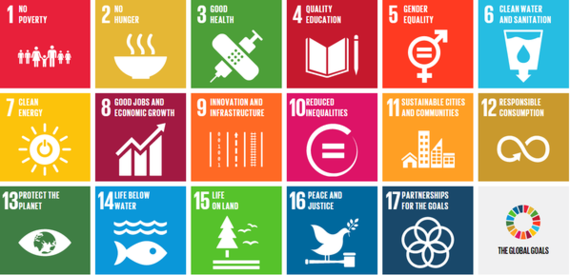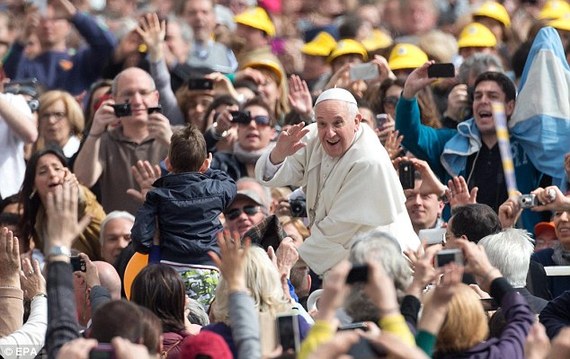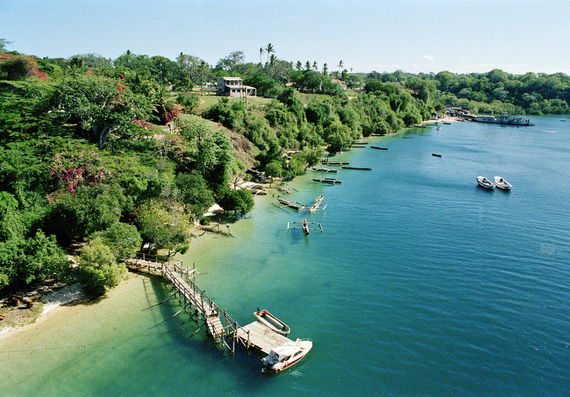Pope Francis is coming to town. Literally. According to the Vatican news, the Pope soon embarks on a journey that will bring him to the United States first ( flying to Washington DC from La Habana-Cuba on September 22nd), meeting with President Barack Obama on September 23rd and culminating with his address at the United Nations General Assembly on September 25th.
If you had a chance to look at his latest encyclical, you will be surprised to see how well he is predicting the future of the world. International talks are revolving around climate change, renewable energies and a sustainable environment to live in, as also mentioned in the newly Goals of the United Nations ( Sustainable Development Goals, which will be approved at the 70th session of the United Nations General Assembly in New York, and will replace the Millennium Development Goals, for the next 15 years).
Calling it a "social teaching" instead of a "green manifesto", Pope Francis's wit to include practical examples of how we can harm less the environment is what makes him practical and realistic. For this- he says- "dialogue is essential".
The time and moment in history are right. The Pope will address heads of states and governments at the United Nations in September, pushing for faster and effective climate change negotiations for, among the hop topics, the reduction of greenhouse gas emissions, sustainable production and consumption in both personal and business lives, less use of less fossil fuels and more renewable sources of energy ( id est solar power systems, wind and geothermal energy).
The Climate Change negotiations will take place in Paris in December at the United Nations Conference on Climate Change CO21 to reach a common agreement on the climate, applicable to all countries, with the aim of keeping global warming below 2 Degree Celsius. Latest news also report that UN Secretary-General Ban-ki Moon, frustrated by low progress on climate talks, will gather, on September 27th, with President Barack Obama, as well as German Chancellor Angela Merkel, French President François Hollande, India's Prime Minister Narendra Modi, Brazilian President Dilma Rousseff, and Chinese leaders to add "political push" to reach a global carbon accord.
Going back to wise Francis, he understands that " those who possess more resources and economic or political power seem mostly to be concerned with masking the problems or concealing their symptoms"- referring to the wide inequality gap between the rich and the poor- and "the failure to respond points to the loss of responsibility for our fellow men and women upon which all civil society founded".
The issues of poverty and inequality connected to climate change are of utmost importance. If it is true that the world is warming up and temperatures are rising, the most affected people by it will be the most vulnerable ones. For example, as Pope Francis explains "the depletion of fishing reserves especially hurts small fishing communities without the means to replace those resources; water pollution particularly affects the poor who cannot buy bottled water; and rises in the sea level mainly affect impoverished coastal populations who have nowhere else to go". If we look around us, I am sure we can find many more thousands examples.
The green rhetoric here if of people who "being located in affluent urban areas" are far removed from the poor, with little direct contact with their problems. This lack of physical contact and encounter, encourage at times by the disintegration of our cities, can lead to a "numbing of conscience and to tendentious analyses which neglect parts of reality".
Humanity is strongly connected to Environment. We influence it, in a positive and negative way, and it influences us. The environment is "il Creato", the Creation, what surrounds us, and what we should take care of. An ecological crisis is taking place. An "ecological approach" is deemed necessary, and it naturally also becomes a "social approach". The way we behave, our ethical responsibility, is what makes us live in society and it is the primary sign of caring and giving, with a open eye and a wide view of the people living in the world. (not only our family members, our colleagues and our friends).
The light of Hope at the end of his encyclical ( this is what makes Pope Francis so human and spiritual at the same time), sends a positive message on the nature of the human beings. Human beings- he starts-are capable of doing the worst, but are also able to rise above themselves, choosing again what is good, and making a new start, despite their mental and social conditioning". He also reminds us that "no system can completely suppress our openness to what is good, true and beautiful, or our God-given ability to respond to his grace at work deep in our hearts". I very much look forward to receiving your comments on the relationship between climate change, poverty, global inequality and ethical responsibility ( and I would love to receive a comment from the Pope himself!)
In the meantime, I welcome you to read the environmental encyclical, fully and freely published by the Vatican, here.
Ciao and see you soon!Gaia



